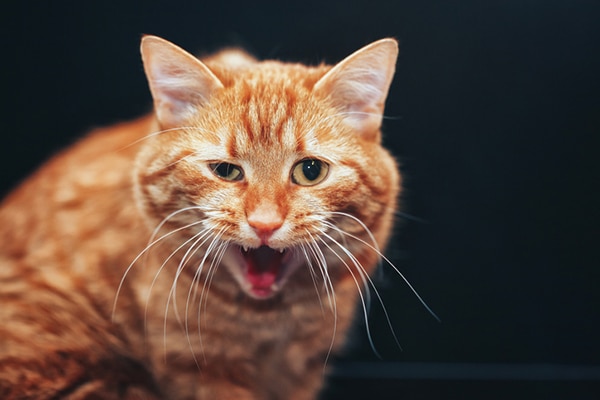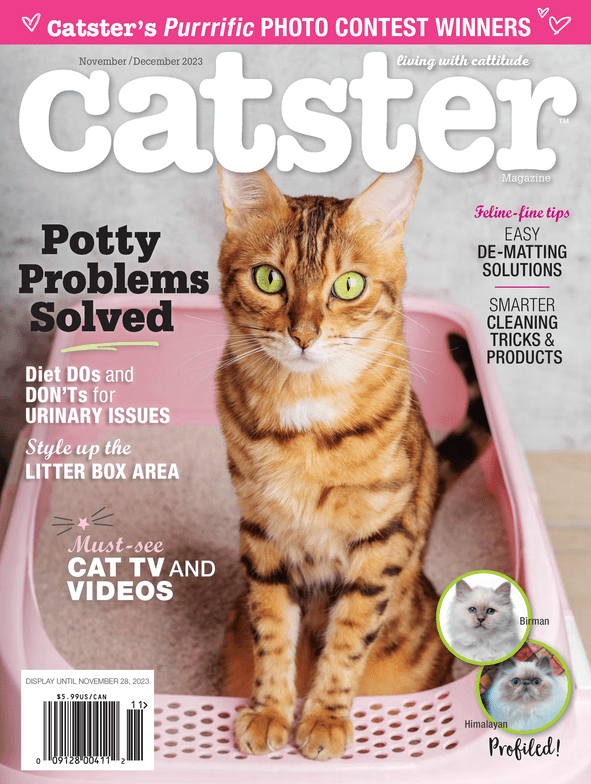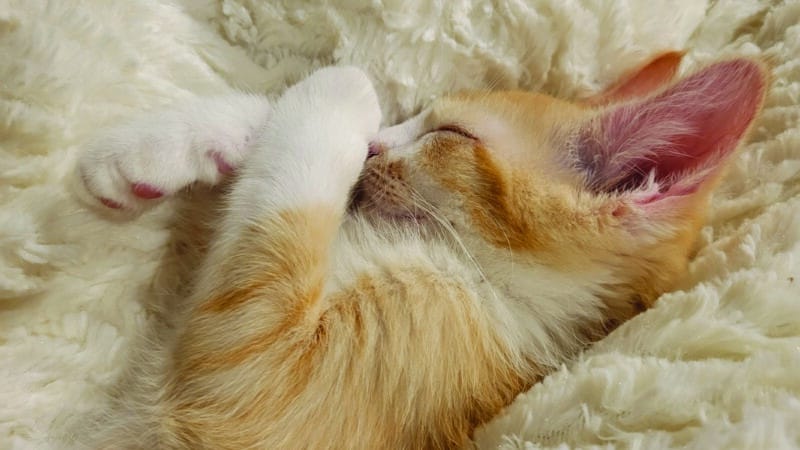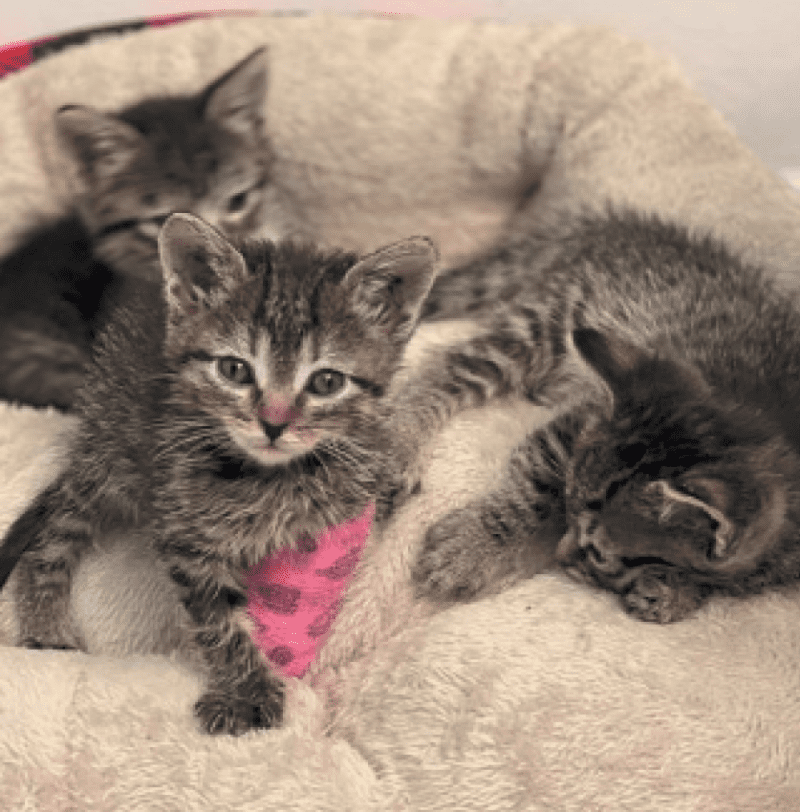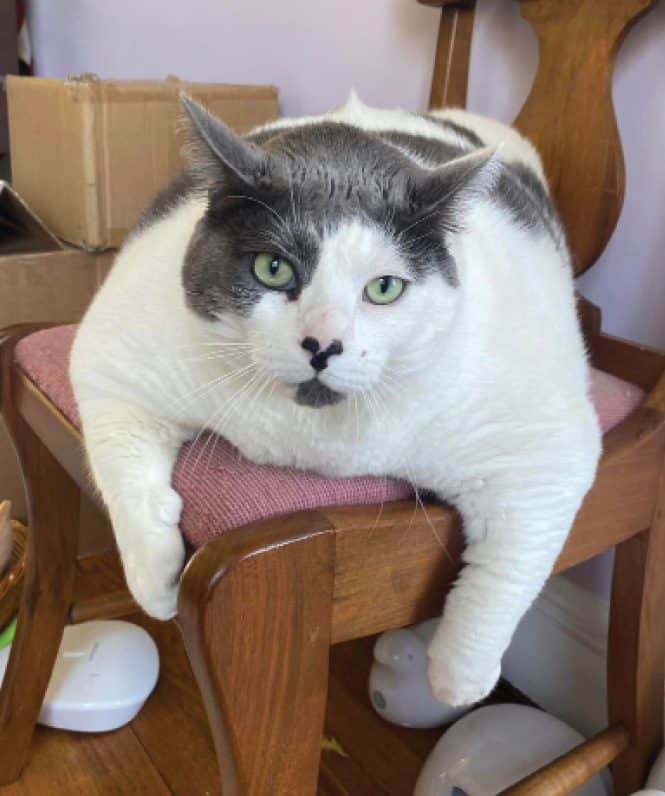After I graduated from college, I borrowed one of my family’s cats to keep me company in my new apartment. One morning after she had breakfast, she vomited. After supper, she did it again. The next day, the cat vomiting happened again. I freaked out. I called a vet clinic, explained in a shaking voice what was happening — I was sure she was dying! — and got an appointment the next morning. A quick consultation later, the vet sent me home with a tube of Petromalt, and after the first dose she ejected the biggest hairball I’d ever seen. Actually, most cat vomiting is caused by fairly innocuous things, and here are the top culprits.
1. Hairballs
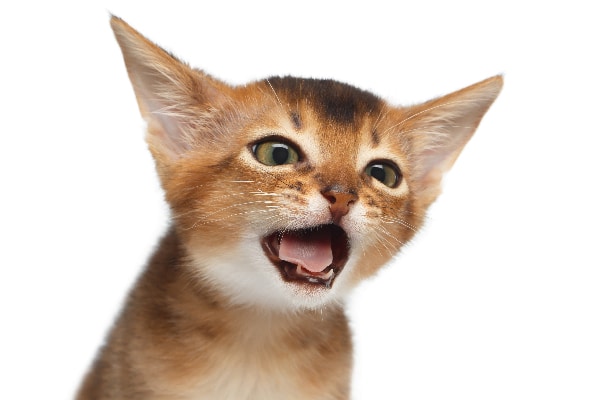
Hairballs are one of the top reasons for cat vomiting. When your cat grooms himself, loose hairs get stuck on the little comblike barbs on his tongue. Because he can’t spit that fur out, he swallows it, and if too much of it clumps in his stomach, it doesn’t leave a lot of room for food. You can help to prevent hairballs by grooming your cat regularly. Even short-haired cats benefit from regular brushing.
2. Eating too fast
“Scarf and barf” is another common culprit when it comes to cat vomiting. My cat Bella is a puker, and the fact that she vacuums up her food as if she’s never going to eat again is the main reason. In order to get her to slow down, I squish her canned food down into the bottom of her bowl so she has to lap it up rather than scarf it down in huge chunks. Another trick is to use a food bowl with a lump in the center, which will force your cat to slow down.
3. New food
If you switch cat food brands, something in the new product could irritate your cat’s stomach. Switching from a dry-food-only diet to canned food can also cause vomiting, because canned food is quite rich compared to dry. Try switching back to the old food to see if your cat’s vomiting stops.
4. Eating grass or plants
If you have plants in your house, your cat may get the urge to chew on the leaves, which could result in your cat vomiting. Be sure that the plants in your home are non-toxic to cats. Consider planting a cat grass garden so your feline friend will leave your houseplants alone.
5. Parasites
Heavy worm infestations can cause cat vomiting. If you see evidence of worms in your cat’s vomit or feces, get to your vet and get some deworming medicine. You may pay more up front for the stuff your vet provides, but in the long run you’ll save because you won’t be buying dose after dose of ineffective over-the-counter remedies.
6. Stomach obstructions
Some cats eat plastic, paper, cat toys, rubber bands, clothes or whatever they can get their mouths on. If you suspect that your cat has eaten a foreign object, call your vet right away, because this can be a life-threatening situation.
A word of warning when it comes to cat vomiting
Cat vomiting can also be caused by poisoning or by very serious diseases. If you suspect your cat has eaten something toxic, call your vet right away for first-aid instructions. If your cat’s vomit is bloody or black like coffee grounds, get to the vet immediately. If your cat is vomiting every day, refusing to eat or drink, acting weird or isn’t grooming properly, call the vet and get him in for an appointment as soon as possible.
Tell us: Do you have a cat who frequently vomits? How do you handle cat vomiting? Please share your experiences in the comments!
Thumbnail: Photography by Valery Kudryavtsev/Thinkstock.
This piece was originally published in 2013.

